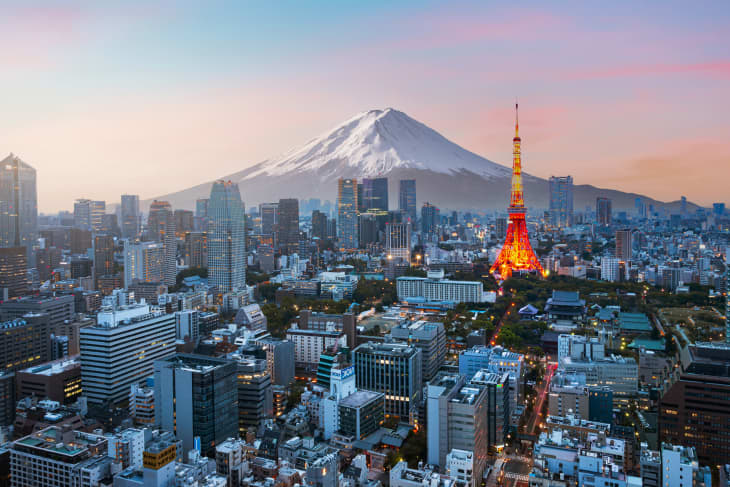Dreaming of Moving to Japan? Here’s What to Know If You’re American

Moving to Japan is a big life change — one that likely makes you feel excited, but also a bit nervous. Japan’s language, culture, customs, and currency are all different than what you’re used to in the United States, so you probably have some questions. Before you hop on the next flight to Tokyo or Osaka, here’s what to consider before moving to Japan.
Can a U.S. citizen live in Japan?
As you practice your Japanese, you may be wondering whether U.S. citizens can even live in Japan. The answer is yes. However, as with nearly all international moves, you’ll need to thoroughly research and follow Japan’s immigration rules.
The Japanese government has different requirements depending on the length of your stay, as well as what you’ll be doing in the country. As a U.S. citizen, you can visit Japan for up to 90 days. But if you’re planning a longer-term stay, you’ll need to make it official and get a visa.
What do I need to do before moving to Japan?
You’re probably eager to start packing, but before you do, here’s what to do to get ready for your move.
Get your paperwork in order.
You’ll find everything you need to know about visas online on Japan’s Ministry of Foreign Affairs website. But it’s also a good idea to get in touch with your nearest Japanese Embassy or Consulate-General office for more information (and this is also where you’ll submit your visa application).
Downsize your stuff.
Japanese apartments tend to be tiny — much smaller than you’re likely accustomed to in the U.S. As you pack up your belongings, consider selling or donating some items. (This will also help cut down on costs if you’re shipping your belongings.)
Organize, organize, organize.
Being organized is critical for any move, but is especially important for a big international move, says Amanda Wiss, a personal organizer and the founder of Urban Clarity. “Itemize your boxes and try to keep them organized by room,” she says. “Because customs can open any boxes at random, take inventory of each individual box, then print and put said list inside each box.”
Do a trial run.
Before you commit to a lease, do a trial run in the same neighborhood by booking a longer-term stay at a vacation rental. This will help you get a much better feel for the area — and you may even realize you like a different part of town better.
Consider little ones.
If you’re moving to Japan with children, remember that this will be a huge transition. Make it easier on them by waiting until the end of the school year and keeping them in the loop as much as possible, says Nancy Zafrani, general manager of Oz Moving & Storage. “No surprises,” she says. “Moving is stressful enough for the adults that have made the decision, but it can be a bit more traumatic to the little ones who have no say in making such a major life change.”
Can I move to Japan without a job?
You can visit Japan without a job, but if you plan to stay, you’ll need to get one or meet the country’s other requirements for long-term stays. And don’t think you can try to sneak around the rules, either.
“Japanese immigration officials are aware of the pattern of people staying for 80–90 days as ‘tourists,’ spending a few days in Korea, Guam, or some other nearby area, and then seeking to re-enter Japan for another 90 days,” according to the U.S. Embassy and Consulates in Japan.
“Persons with such a travel pattern can expect to face questions at Japanese Immigration and may be denied entry with the suspicion that they have been working or will work illegally in Japan.”
How to get a Visa as an American
Japan offers visas for a wide range of purposes. You can get a “working visa” for all kinds of jobs, from journalism to engineering to nursing. You can get a “general visa” if you’re a college student or if you’re studying Japanese cultural practices, like flower arranging. You can even get a “specified visa” for longer-term sightseeing (if you can prove you have enough savings to support yourself).